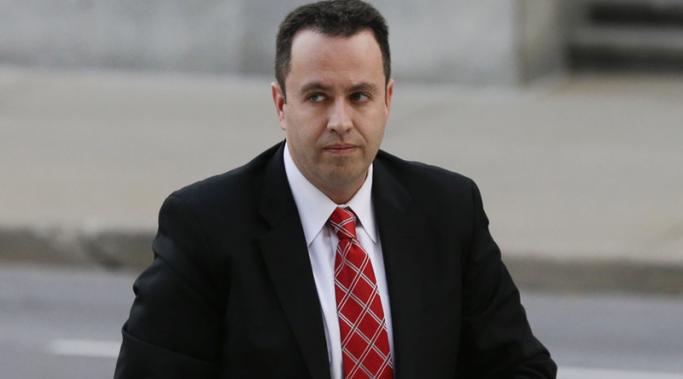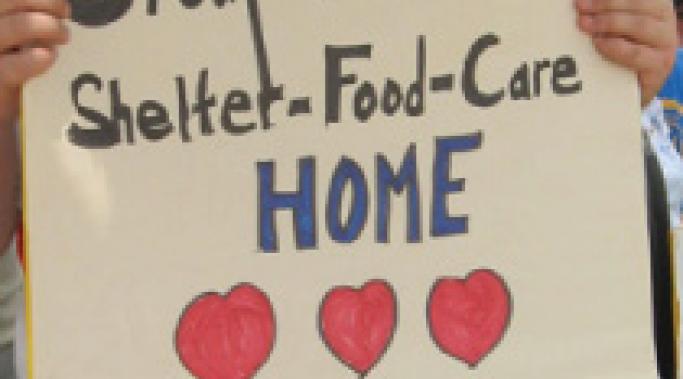Did you know that the heat can affect psychiatric patients? Recently I moved into an apartment with no air conditioning--and Indianapolis has been hotter than usual. I noticed that my mental illness symptoms are worse than usual as well, so I researched how heat can affect psychiatric patients, both physically and mentally. I found that heat can affect psychiatric patients by interfering with their ability to sweat, increasing depressive symptoms, and increasing suicidal ideation.
Recovering from Mental Illness
We see signs of how the mental health system suffers, but too often, the mental health system fails with lethal results. We all know that the mental health system fails, but have we ever thought of the results of that failure? In the case of Jamycheal Mitchell, another #BlackLivesMatter death no one is talking about, a $5 theft and subsequent jail stay proved fatal. Once again, the mental health system fails with lethal results.
There are three alternatives to self-injury that I have found helpful. Some of them are well known, while one is new to me (by which I mean I learned it two days ago). Self-injury borders on being an addiction, and sometimes we can feel obligated to self-injure. However, we need to remember that there are at least three alternatives to self-injury.
Attention 32 million families of the Ashley Madison hack: a cheating partner is not your fault. Josh Duggar, the former head of an anti-gay hate group that preaches "family values" is a sex addict who is making it out to be his wife's fault that he cheated on her. His words, not mine.
According to a New York Daily News article, "there will be some suggestion of whether or not she should have been more aware of the pressures Josh was under, of the issues he was facing, and how she could have better counseled him or helped him." Divorce "is not even something that will be discussed."
It's unknown if these are her words or her husband's words. Either way, these words reveal the lie that the victim is somehow to blame for abuse--and treating your partner as part of a harem and blaming him or her for it--is domestic abuse. Maybe you're feeling this way because you're one of the 32 million stories of adultery exposed by the Ashley Madison hack. The fault lies with the cheater, not you. Abuse is not your fault.
Is Jared Fogle mentally ill? I live in Indianapolis, where the debacle has been extremely high-profile. Fogle plea-bargained to charges of traveling to engage in illicit sexual conduct with a minor and distribution and receipt of child pornography and will serve jail time (Pedophiles on the Web). During the press conference that was, unfortunately, near my bus stop, Fogle's attorneys claimed he had "a medical problem." After my initial disgust and rage, I realized that they are technically correct. Pedophilia is a recognized mental disorder. But how much of the blame is on Fogle and how much of it is mental illness? Is Jared Fogle really mentally ill?
What are three myths about psychiatric patients? There are many misconceptions about mental health consumers, largely fueled by stigma and ignorance. I've dealt with three psychiatric patient myths over the course of my life, each one harmful in its own way.
There are many myths about self-injury (SI), but today I'm going to focus on three. These three myths about self-injury contribute largely to the stigma of mental illness, make it difficult for the self-injurer to seek help, and increase the risk of suicide. Each of these myths is common, even among mental health professionals. That's why we need to call them myths and try to educate people who believe them. The more people understand these three myths about self-injury, the better prepared they are to help a person who self-harms, and the easier it will be for the self-injurer to seek help for this problem. We must name and debunk these three self-injury myths.
Why are psychiatric drug side effects so severe? Recently, I complained to my psychiatrist that I felt like my heart was racing. She took my pulse, frowned, broke out her stethoscope, then ordered an electrocardiogram (EKG). The EKG came back abnormal, so the nurse practitioner overseeing it ordered another one. Both EKGs showed that I may have had a mild atrial heart attack. I see a cardiologist on Thursday. How could psychiatric drug side effects be so severe? (Check the side-effects of your psychiatric medications)
White privilege in mental illness is no surprise to many minorities. The case of Natasha McKenna in Fairfax, Virginia--you know, the #BlackLivesMatter death no one is writing about--is an example. McKenna, a petite African-American woman diagnosed with schizophrenia at age 12--died while in police custody. She had been taken out of the psychiatric ward by police, but from there the story gets murky. What is known is that she was beaten by police, then tasered four times while handcuffed behind her back, shackled and in a spit hood. She died from her treatment--which probably would have been vastly different if she weren't a poor black woman. We are long overdue for a conversation on white privilege and mental illness.
Is there a need to regulate group homes for adults with severe mental illness? Recently, I was living in a privately run group home, and to make a long story fit the word count, witnessed abuse and reported it. I'm now living in a transitional housing program for adults with mental illness run by a public community mental health center, and life is considerably better there. It made me think about the need to regulate group homes for the mentally ill.









